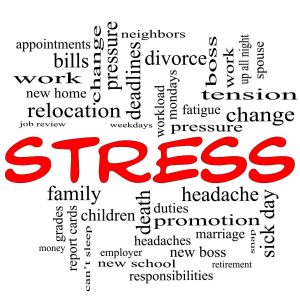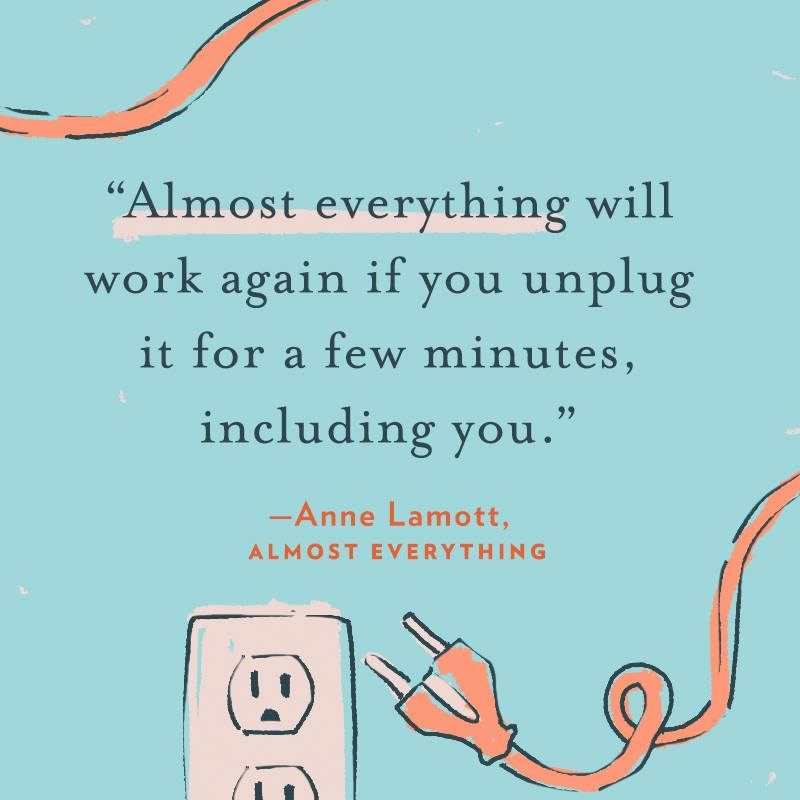Shit needs to be done and bills have to be paid and the dog puked on the carpet and the kid had a meltdown and we have appointments today but the car broke down and we need to eat and the house is a disaster and the basement is flooding and OMG I’m feeling so overwhelmed with life! Is it ever going to stop?
It’s easy to start feeling overwhelmed with the responsibilities that life constantly throws at you. Sometimes it feels like everything is coming at you at once and you have a hard time coping with it all. You become overwhelmed with adulthood!
How can anyone possibly manage so many all-consuming things at once? The truth is that nobody can do it all. NOBODY. To begin to stop feeling overwhelmed with life, you have to deal with one thing at a time.
As an Amazon Associate I earn from qualifying purchases. This means if you click on a link and buy something I’ve recommended, I get a small commission at no additional cost to you. You can see my full Disclosure Policy here.
What does it mean to feel overwhelmed?
Feeling overwhelmed is an all-consuming state of mind and is not easy to define. Vocabulary.com had the best definition of overwhelming that I could relate to: “Something overwhelming is very intense and hard to deal with: overwhelming events make people worried and stressed out.”
What causes people to feel overwhelmed?
There are many different reasons people become overwhelmed, including:
- Relationship issues
- Physical or mental illness
- Career or work challenges
- Financial issues
- Life changes; including marriage, childbirth, divorce, moving, buying or selling a house
- Death of a loved one
- Time management or productivity issues
- Personal trauma
- Awesome things that fill us with emotion
For the purposes of this article, we will look at how to stop feeling overwhelmed with life because you have to deal with too many responsibilities at the same time. I will use the example of something that was stressing me out not too long ago.
I was feeling overwhelmed with the fact that my Mother had a heart attack and required a triple bypass (open heart surgery) during the pandemic and resulting quarantine. She lives an hour and a half away and family was not allowed to visit. The only communication I had with her or her health providers was through disjointed phone calls. We had no control over the situation and there was absolutely nothing we could do for her during her 3-week hospitalization.

What happens to you when you’re feeling overwhelmed?
When you have too many things to do at once, you can feel the stress building as each task is added to your list. Cortisol, the “stress hormone,” floods your body and creates increasing anxiety, which results in the “fight or flight” feeling of being overwhelmed.
At the same time, you may feel frozen and paralyzed and not know what to do. You can’t seem to take that first step to lead yourself out of the paralysis. So you do nothing. You are completely overwhelmed.
Not only did my mother face open-heart surgery alone, but she also had a stroke during the procedure which left her with some difficulty speaking when she woke up. I still couldn’t do anything to help. It had gone from bad to worse!
RELATED POST: Why I HATE the Holidays: The ultimate guide to surviving Christmas
How do you know if you’re feeling overwhelmed?
There are many possible symptoms of feeling overwhelmed, including:
- Difficulty focusing and/or concentrating or being easily distracted
- Foggy thoughts and forgetfulness
- Lightheadedness, dizziness and/or nausea
- Difficulty thinking logically or acting rationally
- Impaired problem solving skills
- Racing thoughts
- Shallow breathing
Feeling overwhelmed may also negatively affect your emotions, resulting in:
- Anger or irritability
- Anxiety and excessive worrying
- Fear
- Guilt
- Resentment
- Self-doubt and feelings of helplessness
- Panic attacks and feelings of doom
Even though I knew my mom was in good hands, I couldn’t help but feel completely helpless that there was absolutely nothing I could do to help her. I was very afraid that she could die.

12 steps to stop feeling overwhelmed with life
1. Acknowledge that you are feeling overwhelmed
Fighting the anxiety and overwhelming feelings will get you nothing but more anxiety and more overwhelm.
When you accept and acknowledge these feelings, you recognize that the feelings won’t go away just because you want them to. Acceptance is the first step to take back control and ride the wave.
I took a deep breath and let the helplessness and anxiety wash over me. I accepted the fact that I had no control over what was happening to my mom. I could only stay available and informed.
2. Be mindful and focus on the present
Keep your mind focused on the present and the task you are doing right now. Try not to let the negative thoughts consume your mind and stress you out even more.
Try to identify what the trigger is that is making you feel so overwhelmed. Realize you have choices. Think about how you can reframe the situation to focus on solutions instead of problems and you will find that your perspective begins to change.
I recognized I was feeling helpless with no control over the situation. I decided to focus on what I could do, such as making sure to call the hospital twice a day for updates and advocating on her behalf. I could also call her and comfort her and try to plan for the future, when she would be released.
3. Ground yourself
To further focus on the present and alleviate some of the anxiety, just stop, breathe and reset how you feel about the situation.
Take stock of your senses by noticing five things you can see, five things you can hear, and five things you can feel, taste or smell. Our basic human senses remind us that we are here now and that we are safe.
I took a deep breath and told myself that I was safe at home and my mom was getting the best care available.
4. Don’t try to be perfect
Good enough really is good enough. Seeking perfection causes a lot of unnecessary stress, frustration and misery. We don’t live in a perfect world and life would be really boring if we did.
Some of the most enjoyable things in life are often the results of mistakes we make and are the best way we learn, grow and evolve as a person. A good example is the great stories we all tell of things that went very, very wrong.
I realized I was comparing myself to the perfect daughter who would do and say all the perfect things and that I was limited in my ability to comfort my mom and help her make decisions due to the circumstances.
I focused on my strengths instead. I could open the channels of communication and keep myself informed. I could comfort my mother to the best of my ability over the phone. And I could plan for the day she would be released from the hospital
[mailerlite_form form_id=1]5. Learn to say no
You don’t have to accept every invitation extended to you. You don’t have to agree to every request someone makes of you. Learning to say no can help you conserve your limited time and energy and earn you respect from yourself as well those around you.
The best resource I’ve found to learn how to say no is the book F*ck No!: How to Stop Saying Yes When You Can’t, You Shouldn’t, or You Just Don’t Want To by Sarah Knight. In it, she provides the following decision chart for saying yes or no:
You can get a lot more great information on saying no, dealing with anxiety and generally feeling overwhelmed by life in Sarah’s No Fucks Given Guides.
My mom kept telling me that she wanted to go home. I realized that she wasn’t medically ready to do so, and continued to focus on what would happen when she could go home.
6. Build a strong support system
Start with your family and friends, who all have your best interests at heart. Try to ensure that they are a positive influence and weed out the negative energy suckers.
If you find you aren’t getting the kind of support you need from your family and friends, reach out to like-minded souls in your community by joining some activity or hobby groups that interest you. Even if you don’t make close connections, you can still enjoy the stress-relieving benefits of the activity or hobby.
I included my step-dad in all updates and helped him get through this difficult time. I reached out to my friends to let them know what was happening to allow them to comfort me.
7. Delegate
Life is full of tasks that need to be done. Too many tasks can lead to feeling overwhelmed by adulthood and its responsibilities.
The ability to effectively delegate allows you to accomplish more. Ask someone to do something and trust that they will get it done. Remember other people can do some things better than you can.
Don’t micromanage tasks as this will lead to reluctance to assist you in the future. While you may think you know the best way to accomplish a task, the person you’re delegating to may have a better idea. Nobody likes criticism when they’re trying to help you out.
I knew I wouldn’t be able to do everything for my mother once she was released to her home, so I did my best to arrange all the care services she would need once she did get home. As I am considered an ‘essential employee’, I have to keep working, so I asked my son to stay with my mom and step-dad to help them out during my mom’s recovery. He agreed.
8. Manage expectations (your own and others’)
Expectations are the beliefs we have about something that will happen in the future. People, including yourself, can be very disappointed when their expectations aren’t met.
Be honest with yourself and communicate clearly with others involved what they can and cannot expect from you. Let them know if external factors can affect the outcome. If expectations are made clear in advance, there is a much lower chance of disappointment.
My mom had expectations of me making a special dinner the day she got home, as she was very tired of hospital food. I had to let her know that I would be too busy driving around, shopping and making her comfortable before I had to leave. I told her we would order in whatever she wanted for dinner that day.
9. Be grateful
Gratitude is the act of acknowledging and being thankful for the good things in our life. It elicits a positive emotional response by producing feelings of happiness, pleasure and contentment. It lowers the levels of the stress hormone, cortisol, in our bodies and positively impacts our overall health and well-being.
You may want to start to keep a Gratitude Journal, to help yourself pay attention to the good things in life you’d otherwise take for granted. It’s recommended to write it in once a week to establish the habit of paying attention to events and people who inspire gratitude.
I am so grateful that my mom came out of this terrible situation without lasting effects and that she will slowly get stronger and gain more stamina.
10. Let go of resentment
Resentments are negative feelings that you may have been carrying around for years. If you’re feeling overwhelmed, you may have fallen into a pattern of thinking that you’re the only one you can count on to get everything done and blaming others for not helping or taking over.
Challenge those resentments. Here’s an exercise to help identify the source of your resentments and let them go.
I accepted the situation for what it was. A worldwide pandemic was happening and hospitals were not allowing visitors and there were no exceptions. I made the best of the tools that I had available to comfort my mother and keep informed of her condition.
11. Reboot and refocus

Take a step back and just take a short break. Go for a walk, listen to some music, meditate or even take a short nap. If possible, take an overnight or weekend break.
A break will leave you mentally and emotionally refreshed with a new perspective on exactly what it is you need to do and when you need to do it.
I had a little screaming session to let out my stress and frustration. It felt great! Then I went back to making a plan for her release.
12. Prioritize
Make a list of all the things you need to do in order to accomplish everything that is making you feel overwhelmed. Start with the things that will take 5 minutes or less and just do them and check them off, unless you need to do something else first in order to do that thing.
Next, try to prioritize the things you like to do, if it works within your timeline. It’s easier to start with doing something you enjoy and ticking that off your list and the small accomplishments help build momentum.
Continue to prioritize your list to progressively reach your goal. This helps to keep you focused and on track.
My list of what needed to be done before my mom’s release looked something like this:
- Communicate with hospital regarding her condition and expected discharge date
- Communicate with mom regularly to offer support and encouragement
- Make sure that supports are in place for mom’s return home
- Make a plan for when she is finally released
13. Make a plan and execute it
A plan gives you step-by-step details that will help stop you from feeling overwhelmed because you will know exactly what you need to do and when you need to do it. This helps give you a greater sense of control over the situation.
The following list is what I planned for my mom’s discharge date:
- Pick up son
- Make sure gas tank is full
- Drive to mom’s town
- Pick up step-dad
- Pick up mom from hospital
- Stock up on groceries
- Get all prescriptions
- Take her home and make her comfortable
- Order whatever mom wanted for delivery
- Ensure that everyone is OK
- Drive back home
Execute your plan
Now it’s time to focus on your plan. It’s all laid out right there in front of you! Keep it simple and let it guide you. Remember to be flexible because, well, shit happens! Don’t let the little things derail you and leave you feeling overwhelmed again. You’ve got this!
I followed my plan with minimal changes. The discharge time was delayed, so we ended up getting groceries before picking her up. My mom was so happy to be home with her family and comfortable in her own bed. I call it a win!
14. Self-Care
It’s imperative to practice self-care. It’s like putting the oxygen mask on yourself before anyone else on an airplane. If you don’t take care of yourself first, you won’t be able to take care of anyone or anything else.
Make sure you get enough sleep, eat healthy food and get enough physical activity. Everyone needs fun and relaxation in their lives, so make time for it in yours.
You might want to pick up a hobby such as yoga and/or meditation to incorporate physical exercise and relaxation into your schedule to help manage your stress on a regular basis.
15. What other people think of you is none of your business
We can’t read other people’s minds and, even if we could, we can’t do anything about what they think. And when we assume, we usually assume the worst.
Don’t do things based on what you think other people think of you. You will only add more pressure on top of the overwhelming pressure you are already feeling.
The only thing that matters and that you can control is what you think of yourself. Save yourself time and energy and focus on what really matters to YOU.
Therapy can help you manage overwhelm
If the above tips don’t help to manage overwhelming thoughts or feelings, cognitive behavioral therapy (CBT) is a great tool to help you to manage your response to them. A qualified professional can help you recognize the issues causing your stress or anxiety and identify the root causes. They can help you develop techniques and skills to understand and better manage your thoughts and feelings and empower you to move forward.

